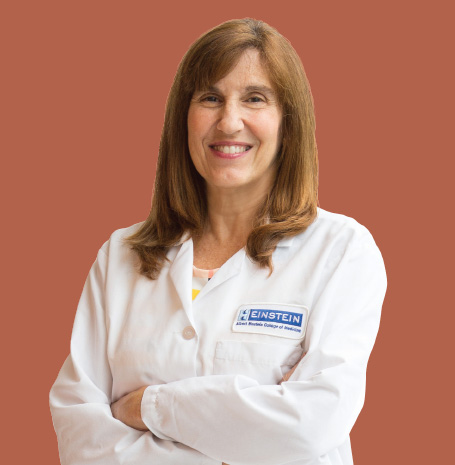
Error: No layouts found
Bernice E. Morrow, Ph.D. ’85, studies the genetic disorder 22q11.2 deletion syndrome, also known as DiGeorge syndrome or velocardiofacial syndrome (VCFS). It can cause heart defects, immune system weakness, cleft palate and developmental, behavioral and emotional problems—all because a small segment is missing from chromosome 22. Dr. Morrow is a professor of genetics, of obstetrics & gynecology and women’s health and of pediatrics (cardiology); the Sidney L. and Miriam K. Olson Chair in Cardiology; and director of the division of translational genetics in the department of genetics.

I’m from Queens and just always liked biology. My parents encouraged me, though they worked in other fields—my father in shipping, my mother as a secretary. I took a fabulous developmental biology course in college and got hooked when I saw chick embryos in the lab. You could watch them develop by opening a piece of the shell.
I got a really good, warm feeling. I sensed they wanted me. It felt like home.
Yes, as a Ph.D. student, I blew up an ultracentrifuge. It was spinning at high speed when it began to rattle and shake like an off-balance washing machine, the loudest sound you can imagine. There was smoke and a metallic smell. I was ready to quit, but the lab director was supportive—“Not your fault,” he said. It turned out that a rotor arm had blown off. His handling of the incident kept me in the program and made me the mentor I am today.
We have regular centrifuges that run at much lower speeds.
As a postdoc, I was pregnant with my daughter, and my son was an infant. I’d drag the stroller to the chair’s office, and she would watch him while I went into the lab. But mostly, people asked “Why are you having children?” and said it would mess up my career.
A week after I joined Raju Kucherlapati’s lab, we saw a little girl with VCFS at Montefiore. I felt an immediate connection to her and knew I wanted to dedicate my career to finding the genes for the disorder.
I play tennis—not competitively, strictly for fun and friendship. And on the court, you forget your problems.
No, they both decided to go into finance, because they wanted to be different from their parents. My husband is a dentist.
If you believe what you’re doing really is for you, stick with it. Perseverance is super-important. It helps to have a good mentor. You can also get advice from graduate committee members. Finally, make friends everywhere. They’ll help you through the hard times and celebrate with you when things go well.